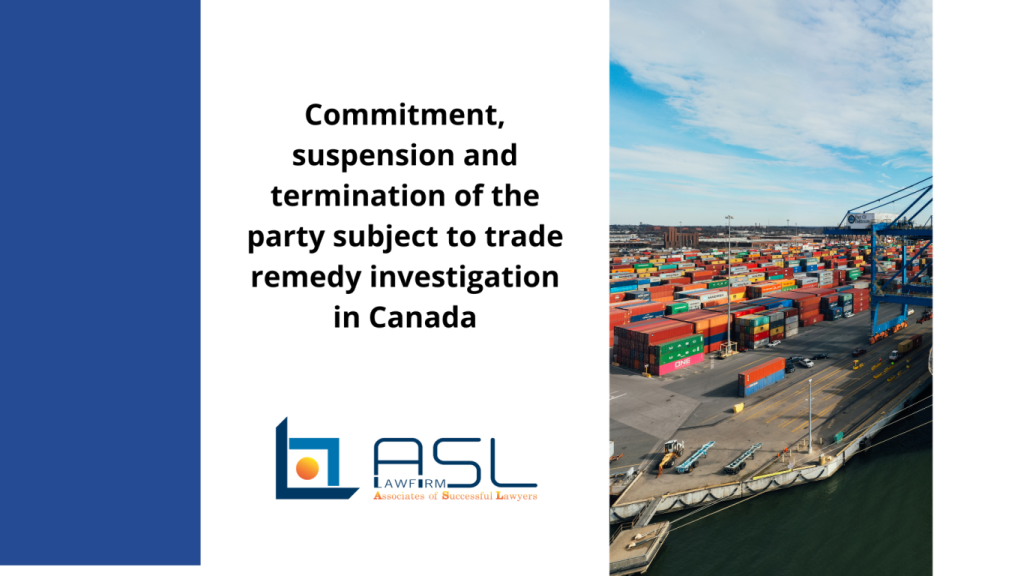When the investigating authority of a country has determined that the act of producing or exporting a commodity of an enterprise in its domestic market is a violation of trade remedy regulations, such as in case of dumping or subsidizing, instead of imposing official duties, the two sides can fulfill their commitments, suspend and stop the violation to protect the interests of the domestic production market.
According to WTO rules, at any stage in the investigation process, the investigating authorities may choose to compromise, agreeing with the commitment of the exporter and the related government to comply with the necessary measures to stop the act of dumping or subsidizing instead of applying duty at the preliminary or final conclusion on dumping or subsidy.
Businesses that are found to be dumping or subsidized by the government can commit to increasing the prices of related products to a level sufficient to remove the margin of dumping and subsidy, to ensure that product prices in the import market are no longer affected.
Making and accepting these commitments will help the investigating agency to have a basis to suspend the investigation and thereby, reduce the cost and time to continue conducting the investigation.
However, accepting the commitments of enterprises and governments of the exporting country also has certain risks because they may not fulfill their commitments and thereby, may cause more serious damage for the domestic market.
Commitment, suspension and termination of the party subject to trade remedy investigation in Canada
In Canada, business and government commitments are only reviewed after the Canada Border Services Agency (CBSA) has made a preliminary conclusion and is usually effective for a period of 5 years. During the time the valid commitments are in effect, no anti-dumping or anti-subsidy duty orders will be applied, issued by the Canadian Trade Remedies Authority.
In terms of form, commitments accepted in Canada may vary depending on the product under investigation and the specific situation of the business, government, market, etc. For example, an exporter may commit to increase the price equal to the estimated dumping level of the investigating authority or using government subsidies to compensate for damage, increase the selling price of the product to make up for the difference, or the government terminate the subsidy or limit the quantity of goods exported to Canada.
However, the ability to request and implement these commitments is very strict, leading to few investigating agencies and businesses applying them in practice. For example, the CBSA requires that at least 85% of the investigational products need to accept and fulfill commitments, in which trade associations may not perform commitments on behalf of members.
In practice, to achieve this number is very difficult, almost impossible because the number of enterprises producing and exporting an item in a country is very large and if more than 15% disagree, the commitment will not be approved. The investigating agency will continue to investigate and impose anti-dumping and anti-subsidy duties for each enterprise separately.
In addition, another requirement for the commitment to be approved is that the petitioner needs to agree, that is, the domestic manufacturing enterprises. However, these industries will generally prefer a fixed duty rate rather than an uncertain commitment from the business.
ASL LAW is the top-tier Vietnam law firm for Anti-dumping & countervailing. If you need any advice, please contact us for further information or collaboration.

 Tiếng Việt
Tiếng Việt 中文 (中国)
中文 (中国) 日本語
日本語

